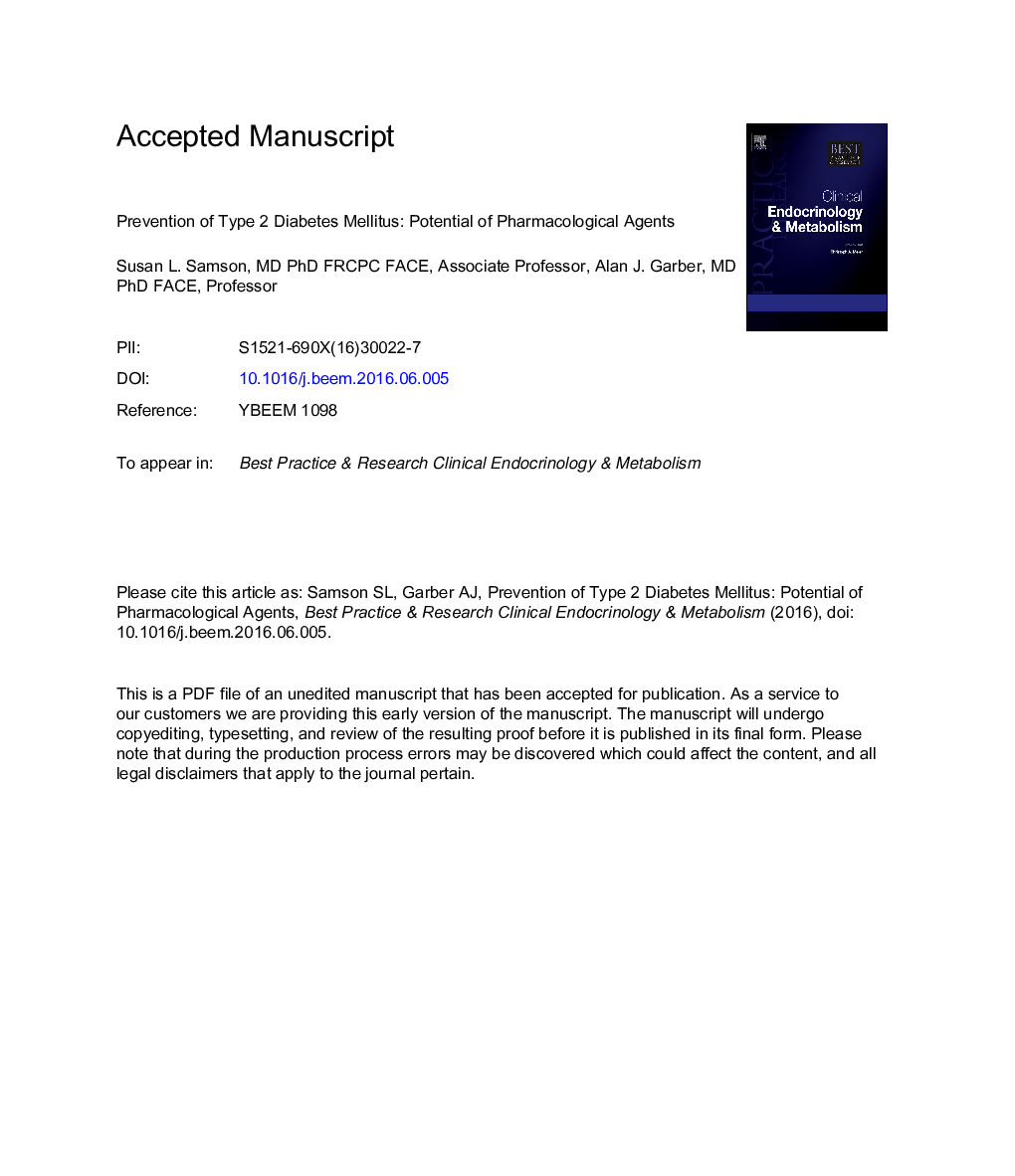| Article ID | Journal | Published Year | Pages | File Type |
|---|---|---|---|---|
| 5586667 | Best Practice & Research Clinical Endocrinology & Metabolism | 2016 | 41 Pages |
Abstract
People with impaired glucose tolerance or impaired fasting glucose, or “pre-diabetes”, are at high risk for progression to type 2 diabetes, as are those with metabolic syndrome or a history of gestational diabetes. Both glucose-lowering and anti-obesity pharmacotherapies have been studied to determine if the onset of type 2 diabetes can be delayed or prevented. Here we review the available data in the field. The most common theme is the reduction in insulin resistance, such as with weight loss, decreasing demands on the beta cell to improve insulin secretion and prolong its function. Overall, therapies which decrease diabetes incidence in high-risk populations delay the onset of diabetes but do not correct the underlying beta cell defect.
Keywords
Related Topics
Life Sciences
Biochemistry, Genetics and Molecular Biology
Endocrinology
Authors
Susan L. (Associate Professor), Alan J. (Professor),
